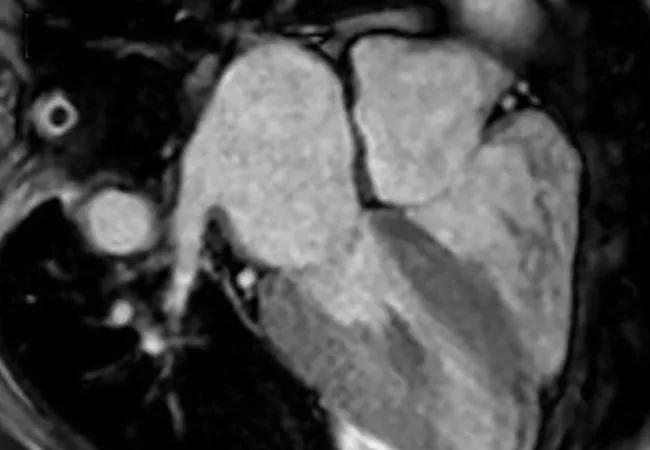Finally, promising new therapies for this difficult disease

A 48-year-old female was transferred to Cleveland Clinic from an outside hospital for a heart transplantation workup due to severe heart failure. She had been diagnosed with amyloidosis at age 45 and had experienced severe shortness of breath, particularly with minimal exertion. Upon her arrival, the Cleveland Clinic Amyloidosis Center team promptly initiated her on chemotherapy with the standard of care at the time, bortezomib, cyclophosphamide and dexamethasone (CyBorD). She was hospitalized for two weeks before being discharged on the therapy.
Advertisement
Cleveland Clinic is a non-profit academic medical center. Advertising on our site helps support our mission. We do not endorse non-Cleveland Clinic products or services. Policy
Unfortunately, she only had a hematologic partial response at her two-month follow-up visit, so the team initiated intravenous daratumumab therapy. This single agent therapy did not produce an adequate response. The team then tried a combination of daratumumab and CyBorD. Her hematologic response improved somewhat, but she was still experiencing significant shortness of breath and elevated N-terminal (NT)-pro hormone BNP (NT-proBNP) levels.
She then enrolled in a clinical trial of CyBorD in combination with cael-101. She achieved a complete hematologic response and her quality of life has dramatically improved, from shortness of breath upon exertion to daily walks for exercise and yard work without issue. Her NT-proBNP levels normalized. The patient completed her course of CyBorD and will remain on cael-101 as long as necessary.
Light-chain (AL) amyloidosis is a rare disease that produces a buildup of amyloid protein in major organs including the heart, liver and kidneys, impairing their function and causing organ failure in severe cases. CyBorD has been the front-line therapy, but most patients do not achieve a complete response, and relapses are common.
The recently released results of the phase 3 ANDROMEDA study, led by Jason Valent, MD, Co-Director of the Amyloidosis Center, showed that the addition of subcutaneous daratumumab to CyBorD results in superior outcomes for patients with AL amyloidosis.
“The recent addition of daratumumab to the standard of care for our patients was a game changer,” says Dr. Valent. “But we still had an unmet need for patients like this one, who already have significant amyloid deposits damaging their organs and/or do not respond to daratumumab.”
Advertisement
Cael-101 is a first-in-class AL amyloid fibril reactive monoclonal antibody designed to target amyloid deposits in the organs of patients with AL amyloidosis. The chimeric IgG1 kappa isotype reacts with light chain fibrils in a way that facilitates the removal of amyloid fibrils. Phase 1 trials of monotherapy were promising, and the results of these phase 2 trials identify a safe and efficacious dose (1000 mg) for phase 3 trials, which are now enrolling.
“Our patient was one of several who did remarkably well with this regimen,” says Dr. Valent. “It’s remarkable how non-toxic cael-101 seems to be thus far. We have seen organ responses without subsequent damage in many patients.” Dr. Valent recently presented results from the phase 2 trial of CyBorD plus cael-101 at the American Society of Hematology annual meeting.
“If the phase 3 studies show favorable results, the combination of these two developments will have a significant impact on the overall prognosis for patients like this woman who went from being considered for a heart transplant to walking three miles daily,” says Dr. Valent. “We are hopeful for consistently better outcomes for these patients in the future.”
Advertisement
Advertisement

First-of-its-kind research investigates the viability of standard screening to reduce the burden of late-stage cancer diagnoses

Global R&D efforts expanding first-line and relapse therapy options for patients

Study demonstrates ability to reduce patients’ reliance on phlebotomies to stabilize hematocrit levels

A case study on the value of access to novel therapies through clinical trials

Findings highlight an association between obesity and an increased incidence of moderate-severe disease

Cleveland Clinic Cancer Institute takes multi-faceted approach to increasing clinical trial access 23456

Key learnings from DESTINY trials

Overall survival in patients treated since 2008 is nearly 20% higher than in earlier patients